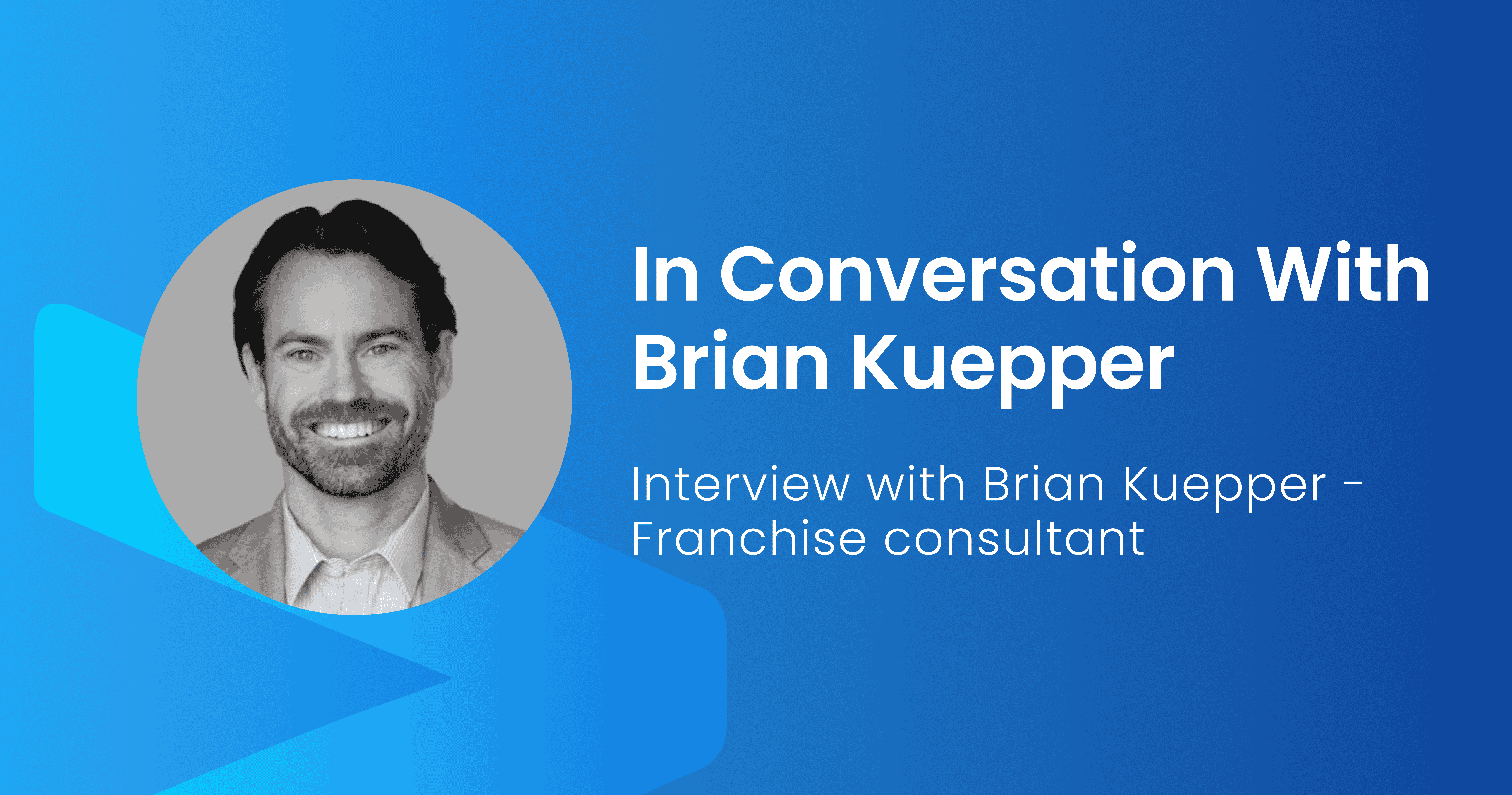Tired of corporate life? Explore franchise ownership as a career shift and unlock new opportunities for independence and growth.

In a Founder’s Grit podcast episode, host Mark Allen of Gaper.io interviewed Brian Kuepper, a seasoned franchise consultant, and the founder of New Ground Consulting to explore the growing appeal of franchise ownership. In today’s rapidly evolving professional landscape, many corporate executives are searching for career paths that provide greater flexibility, autonomy, and purpose. Brian emphasized that franchise ownership serves as an excellent bridge, enabling individuals to transition from the structured corporate world to a more dynamic, self-directed entrepreneurial journey.
Kuepper explains that the appeal of franchising lies in its versatility. While some individuals are eager to break away from the traditional nine-to-five routine, others prefer maintaining a structured workday but with the added benefits of ownership.
“The key is determining what you want in a business and finding one that aligns with your goals.”
Franchise opportunities range from businesses with office settings to mobile or home-based ventures, making it possible to tailor the experience to an individual’s lifestyle.
When evaluating franchise opportunities, Kuepper emphasizes the importance of viewing the business through the owner’s lens rather than the consumer’s. “What does the owner do daily? That’s the real question,” he says. This shift in perspective helps prospective franchisees understand the operational demands and assess whether a particular business aligns with their desired work-life balance.
Ownership also brings decision-making power. As Kuepper notes, even in franchises with a structured schedule, the franchisee acts as the CEO, building equity and potential generational wealth. Unlike corporate roles, franchise owners have the freedom to exit and sell their business, turning years of effort into tangible returns.
Over the past decade, the franchise industry has undergone significant transformations, driven by technological advancements and changing consumer preferences. According to Kuepper, three major trends are reshaping the industry:
Interestingly, Kuepper observes that age and career experience often influence how individuals approach franchising. While younger professionals may initially struggle with corporate structure, older executives are more likely to appreciate and adapt to structured franchise models. However, preferences vary widely based on individual career paths and goals.
“Some people thrive on daily variety, while others prefer consistent routines,” Kuepper explains. For instance, disaster restoration businesses offer unpredictable, ever-changing days, whereas corporate sales training franchises operate on a steady schedule. Understanding one’s work style and preferences is essential when selecting a franchise.
Artificial Intelligence (AI) is no longer just a buzzword; it’s shaping the future of franchising. According to Brian, both franchisors and prospective franchisees are pushing for AI integration. Candidates are increasingly asking franchisors how they plan to incorporate AI into their business models over the next 5–10 years. The competitive landscape is also driving this transformation, as franchisors compete to provide tech-forward solutions that make business operations more efficient and cost-effective.
Historically, franchising has been rooted in traditional industries like HVAC, residential painting, and cleaning services. These sectors were slow to adopt technology. However, Brian emphasized a shift in this paradigm. Modern franchisors are leveraging technology to bring these industries into the 21st century, offering a competitive edge over independent businesses. For national franchisors, scaling technology solutions provide benefits that individual operators simply cannot match.
For those transitioning out of corporate roles and considering entrepreneurship, franchising offers a way to lower risks. Brian highlighted that franchises provide a “business in a box,” which includes a proven business model, established systems, and tested marketing strategies. Statistically, franchises have a much higher success rate compared to starting a business from scratch.
Franchisees are not alone in their journey. They benefit from support provided by corporate teams as well as a community of other franchisees. This collaborative network allows franchisees to share insights and learn from peers who are navigating similar challenges. As Brian put it, franchising allows you to be “in business for yourself, but not by yourself.”
Opening a franchise typically requires a lower investment than starting an independent business. Franchisors often have partnerships that provide discounts on essential tools like customer relationship management (CRM) software, equipment, and supplies. Additionally, franchisees avoid the trial-and-error expenses associated with testing marketing strategies and operational processes.
One critical point Brian made was the importance of aligning a franchise opportunity with an individual’s skills and interests. For example, a professional with a strong background in sales would thrive in a franchise model that emphasizes networking and customer engagement, while leaving backend operations like payroll to the franchisor. Choosing the right fit is essential for long-term success.
Brian sees AI playing a transformative role in franchise research. Currently, franchise information online is either heavily franchisor-driven or skewed by negative reviews from unhappy franchisees. AI could change this by personalizing franchise recommendations based on an individual’s unique skills, goals, and preferences.
While generic AI tools like ChatGPT dominate public perception, Brian believes niche AI applications hold greater promise. In franchising, a tailored AI system could streamline the research process, ensuring candidates find the best fit among thousands of franchise options. This personalized approach would eliminate much of the guesswork involved in choosing the right franchise.
Franchising offers a compelling pathway for corporate professionals seeking entrepreneurship. By providing a proven business model, extensive support, and cost-effective investment opportunities, franchising reduces many of the risks associated with starting a business. Additionally, advancements in technology and AI are poised to further streamline franchise operations and research, making this career move even more accessible.
For those considering the leap, aligning a franchise opportunity with personal skills and leveraging the growing potential of AI tools can set the stage for success. As Brian aptly stated, franchising is not a one-size-fits-all solution; it’s about finding the right fit that complements your strengths and aspirations.
Top quality ensured or we work for free
